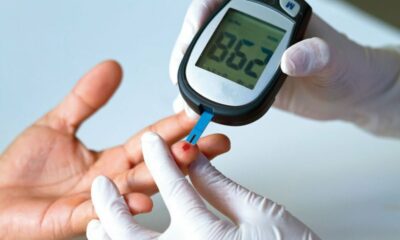Diabetes is a chronic condition that affects millions of people worldwide. With rising incidences, understanding the factors contributing to this condition has become crucial. One of the most significant risk factors for developing diabetes is diet. This article explores how dietary habits can increase the risk of diabetes and offers practical advice on making healthier food choices.
Understanding Diabetes
Diabetes is characterized by high blood sugar levels. There are three main types:
- Type 1 Diabetes: An autoimmune condition where the body attacks insulin-producing cells.
- Type 2 Diabetes: A condition where the body becomes resistant to insulin or doesn’t produce enough.
- Gestational Diabetes: Diabetes that develops during pregnancy and usually goes away after childbirth.
Prediabetes is a condition where blood sugar levels are higher than normal but not yet high enough to be classified as diabetes. It’s a critical warning sign and a chance to make lifestyle changes to prevent the progression to diabetes.
Diet and Blood Sugar Levels
The body converts carbohydrates from food into glucose, which enters the bloodstream. Insulin helps cells absorb glucose for energy. A diet high in certain foods can disrupt this process:
- Glycemic Index (GI): A measure of how quickly foods raise blood sugar levels. High-GI foods cause rapid spikes.
- Glycemic Load (GL): Takes into account the GI and the carbohydrate content in a typical serving.
Understanding these concepts helps in making better dietary choices.
High-Risk Dietary Patterns
Certain dietary patterns significantly increase the risk of developing diabetes:
- High Sugar Intake: Regular consumption of sugary foods and drinks leads to insulin resistance.
- Excessive Carbohydrates: Particularly refined carbohydrates like white bread, pasta, and pastries.
- High-Fat Diets: Saturated and trans fats can lead to weight gain and insulin resistance.
- Processed Foods: Often high in unhealthy fats, sugars, and preservatives.
Specific Foods That Increase Diabetes Risk
- Sugary Beverages: Including soda, sweetened teas, and energy drinks.
- Refined Grains: Such as white rice and white bread.
- Red and Processed Meats: Linked to increased diabetes risk due to high saturated fat and preservatives.
- Fried Foods: Often high in unhealthy fats and calories.
Hidden Sugars and Unhealthy Additives
Many foods contain hidden sugars and unhealthy additives. Learning to identify these in ingredient lists can help in making healthier choices. Common culprits include:
- High Fructose Corn Syrup: Found in many processed foods.
- Artificial Sweeteners: Though low-calorie, they may impact insulin sensitivity.
Portion Sizes and Overeating
Large portion sizes and frequent overeating can lead to weight gain and increased blood sugar levels. Understanding proper portion sizes and practicing mindful eating can help maintain healthy blood sugar levels.
Dietary Patterns and Lifestyle
A Western diet, high in processed foods, sugars, and unhealthy fats, contrasts sharply with healthier dietary patterns like the Mediterranean diet, which emphasizes whole grains, fruits, vegetables, and healthy fats. Plant-based diets have also shown promise in reducing diabetes risk.
Case Studies and Research Findings
Numerous studies link diet to diabetes risk. For example, research has shown that:
- Diets high in refined sugars and fats increase the risk of Type 2 diabetes.
- Whole grains and fiber-rich foods can reduce the risk.
- Personal stories highlight the impact of dietary changes on diabetes management and prevention.
Prevention and Healthier Alternatives
Preventing diabetes through diet involves making healthier choices:
- Balanced Diet: Incorporate a variety of foods from all food groups.
- Blood Sugar Regulation: Choose low-GI foods and incorporate healthy fats and proteins.
- Fiber and Whole Grains: Essential for maintaining stable blood sugar levels.
- Regular Meals and Snacks: Prevents blood sugar spikes and crashes.
Practical Advice for Daily Life
Adopting a healthier diet requires practical strategies:
- Meal Planning and Preparation: Plan balanced meals and snacks.
- Reading Food Labels: Understand nutritional information and ingredients.
- Healthy Cooking Methods: Opt for grilling, baking, and steaming over frying.
Conclusion
Diet plays a crucial role in diabetes risk. By understanding how different foods and dietary patterns affect blood sugar levels, individuals can make informed choices to reduce their risk. Adopting healthier eating habits is a powerful step in preventing diabetes and promoting overall health.

 Diabetology2 weeks ago
Diabetology2 weeks ago
 Diabetology1 week ago
Diabetology1 week ago
 Diabetology5 days ago
Diabetology5 days ago
 Diabetology7 days ago
Diabetology7 days ago
 Diabetology7 days ago
Diabetology7 days ago
 Diabetology4 days ago
Diabetology4 days ago
 Diabetology4 days ago
Diabetology4 days ago
 Diabetology2 days ago
Diabetology2 days ago














